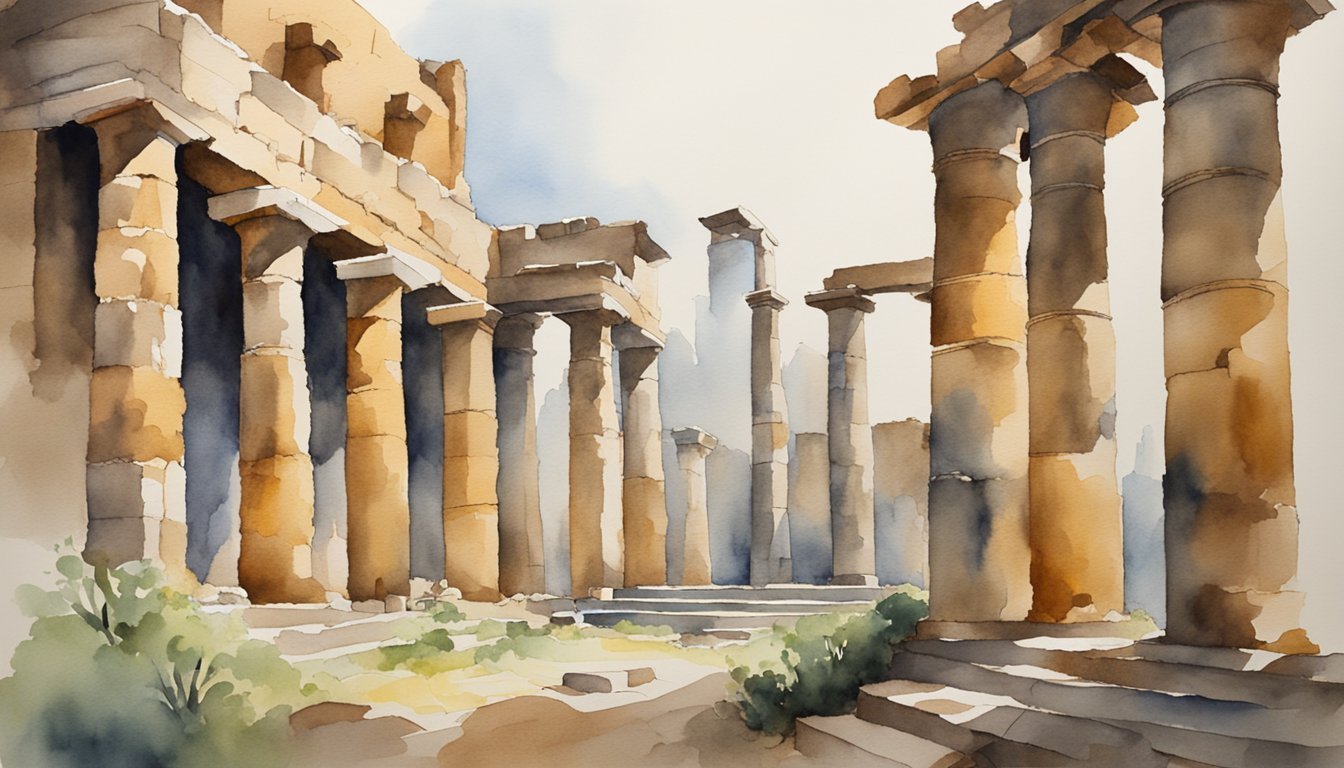Foundations of History

Exploring the methodologies and perspectives that have shaped our understanding of the past, the foundations of history encompass the evolution of historiography, the central role of historians, and the influence of major historical movements.
Development of Historiography
Historiography, the study of how history is written and constructed, has its roots in ancient Greek scholarship, where inquiry and knowledge acquisition were fundamental. Thucydides, an ancient Greek historian, is often credited with establishing a historical methodology that sought to explain human events through evidence and rationality. Over centuries, the field of historiography has expanded, incorporating diverse philosophical underpinnings, such as Marxism, which interprets history through the lens of class struggle and economic systems.
The Role of Historians
Historians are crucial agents in the development of history, tasked with analyzing and interpreting sources to construct narratives. They employ a rigorous methodological framework to distinguish between primary and secondary sources, ensuring the authenticity of historical accounts. Their role is not just to record facts but to understand the causes and effects that tie events into a coherent storyline. The philosophy of history delves into this intricate process, looking into human agency and the diverse interpretations of past events.
Major Historical Movements
Throughout history, significant movements have shaped the societal and intellectual landscape, subsequently influencing historiography. The Renaissance, for example, marked a period of renewed interest in classical philosophies and arts, leading to a more secular and human-centric approach to history. Moreover, history has been shaped by various political, intellectual, and cultural movements, with Marxism being a notable example, emphasizing economic and social factors as central to historical change. Each movement has left an indelible impact on how history is perceived and narrated.
Global Historical Context
The study of global historical context examines civilizations and events from a worldwide perspective and their interconnected impact over time, recognizing the importance of diverse historical forces in shaping modern societies.
Influential Ancient Civilizations
Ancient civilizations laid the foundational cultural, political, and technological frameworks that defined human progress. The Greeks and Romans contributed significantly to Western Civilization with their advancements in governance, philosophy, and engineering. In contrast, ancient Chinese dynasties, such as the Han and Tang, were pioneers in bureaucracy and cultural developments that reverberate in East Asia even today. The Islamic Golden Age, marking a period of extensive scientific, economic and cultural achievements, played a crucial role in the transmission of knowledge to Europe, particularly during the Middle Ages.
Notable Periods and Events
- Middle Ages (5th to 15th century): Characterized by feudalism in Europe and the spread of Islam in the Middle East and Africa.
- Cold War (1947–1991): A period of political and military tension primarily between the Soviet Union and the United States, profoundly influencing global alliances and conflicts.
- Second World War (1939–1945): A global conflict that led to significant geopolitical shifts and the emergence of the United States and Soviet Union as superpowers.
These periods were foundational in shaping the contemporary framework of nation-states and international relations now accepted as the global standard.
Contemporary History and Its Effects
In contemporary history, the dissolution of the Soviet Union marked the end of a bipolar world dominated by the dueling ideologies of communism and capitalism. The United Kingdom’s imperial past, especially during the height of the British Empire, has had lasting effects on current global political and cultural landscapes, including the widespread use of the English language. The United States’ influence in the aftermath of the Second World War and during the Cold War had significant implications on global economics, politics, and culture. Today’s globalized society faces challenges and complexities deeply rooted in these historical contexts, from the enduring impacts of colonialism and the Cold War to the shaping forces of Christianity and Islam on modern civilizations.
For more detailed discussions on global historical context and various perspectives, refer to History Skills, The American Historical Review, the Gilder Lehrman Institute of American History, and the Oxford Centre for Global History.

